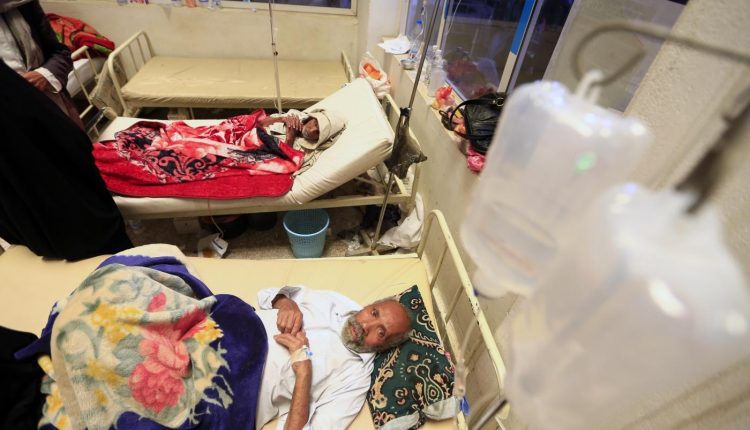Save The Children Warns from an outbreak of Dengue
Seventy-eight children under 16 have already died in the outbreak of Dengue related illness in Yemen, with more than 52,000 suspected cases being recorded across the country. Save the Children warned this could signal the start of an epidemic.
Heavy rainfall, coupled with the ongoing conflict, is disrupting clean water supplies. Because of the disruptions, people use water basins to collect rainwater and these uncovered water sources combined with the rain have contributed to the spread of mosquitoes in the affected areas, resulting in an upsurge in suspected dengue cases.
If measures are not urgently put in place to strengthen the health care system so that cases can be detected early, the death total which reached 192 people by the end of 2019, could increase sharply. Cases have been recorded in almost all governorates in Yemen with the most affected being Hodeidah and Aden which recorded more than 60% of the deaths in the country.
Save the Children Hodeidah Field Manager Mariam Aldogani, herself recovering from Dengue fever, said:
“Hodeidah has the second highest death rate in the country with 62 adult and children deaths in 2019. We have never seen anything like this before. More than 40 of our staff including their families have been affected by the fever. We are getting reports of deaths on a daily basis in remote areas of the governorate. Some of our health facilities are working 24 hours a day and last week one of our facilities recorded 30 cases in one day, most of which were children.
“The economic situation in the country has not made it any better for people. Parents cannot afford to bring their children to the hospital or to buy the medication. Hospitals are full, and some patients are kept in hospitals having to lay on the floor because of a bed shortage. It’s really bad. Children as young as eight months have not been spared by the dengue fever. In some of the hospitals all you can hear are children crying in pain. We are currently supporting 48 health facilities in Hodeidah which recorded more than 6000 Dengue fever suspected cases in 2019.”
Save the Children’s health centers have been receiving many cases of children suffering from dengue, and its teams on the ground are diagnosing and treating patients whilst referring the most severe cases.
Ali, 8, recently contracted Dengue fever in his home village not far from Hodeidah City. His parents brought him to Al-Thawrah Public Hospital – a major health facility in Hodeidah City which has been supported by Save the Children for several years now. Ali is receiving medical treatment along with 14 other children aged between 2 and 8 years.
His mother said: “I had to leave everything back there in the village and stay with my son in here. [He’s having] high temperature all the time and hasn’t eaten anything for three days now.”
Save the Children has also procured medical supplies to respond to Dengue fever and malaria outbreak in its areas of operations, including Aden, Taiz, Hodeidah and Hajjah. It is also raising awareness among health workers and community health volunteers on how to deal with Dengue and other hemorrhagic fevers.
With the constant occurrences of preventable diseases in Yemen, only peace across the country can guarantee quick responses and rebuilding of a health system that is facing collapse. Yemen is still reeling from a cholera epidemic, which led to over 2 million suspected cholera cases between October 2016 and August 2019.
Close to five years of conflict has resulted in the country’s health system at breaking point, with more than half of all health facilities closed or only partially functioning. Many hospitals have been damaged by airstrikes or ground fighting, and there is a widespread critical shortage of essential medicines and qualified staff.

